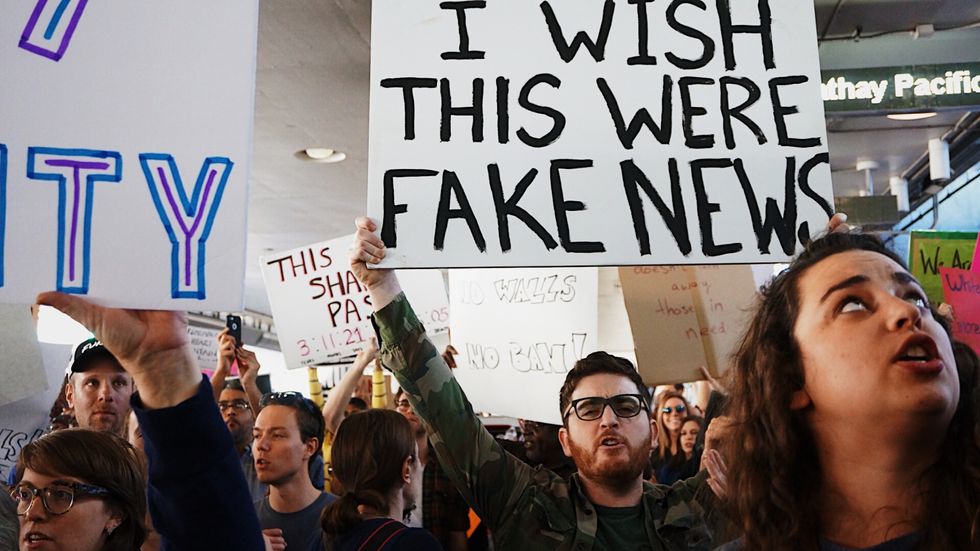They say that actions speak louder than words. But, words weigh more than actions -- they have the ability to change the way we think, enable communication, and empower ideas. This is why it is so important to talk about the Free Speech Crisis on college campuses, an issue that is plaguing our ability to share concepts and theories.
Yes, the Free Speech Crisis exists.
Freedom of speech, first guaranteed to all citizens in the First Amendment of the Constitution, protects the expression of all opinions without restraint (to some extent). The Supreme Court has gone to bat to defend this right on several notable occasions in the past including the 1971 case New York Times Co. v. United States. This case gave The Washington Post the green light to be able publish The Pentagon Papers, which revealed that the Johnson administration was lying about wartime progress in Vietnam.
In other cases, speech that might be considered "offensive" and "outrageous", like in the case Snyder v. Phelps, was considered constitutional when put in front of the Supreme Court. In this surprising case, Westboro Baptist Church members protested the funeral of a solider with picket signs. After the family sued for emotional distress, the court ruled in favor of the protesters due to the public nature of the funeral.
Nowadays, the issue of what constitutes free speech has spread to college campuses around the globe. Most students would argue that they want their campus to be a safe space to express yourself and to form connections with others who hold your same beliefs. Students want college to be a place that harbors ideas of inclusion and change. But, at the same time, most students are opposed to allowing hate speech to be tolerated on campuses.
The grey area here lies within the definition of hate speech. If hate speech becomes restricted on campuses, there is no limit to what it can become classified as. People can start labeling anything they disagree with as hate speech, slowly filtering out anything they deem dislikable.
Some critics claim that college students are not welcoming to the idea of free speech for everyone on campus especially if the speech includes opinions they don't agree with. In reality, college aged students have been more open to free speech in polls conducted by The Washington Post over the last 50 years than any other age group. Some of the survey questions showed that people between the ages of 18 and 34 were more likely to allow a militarist to teach in a school or to hear a gay person/people make a speech.
Some schools have taken their opposition with disliked speech to an administrative level. Many speakers have been invited to speak were later asked to not come because of their radical views and the fear of backlash.
Richard Spencer, an American white supremacist, recently cancelled his speaking tour on college campuses because of the extreme backlash he received on Michigan State's campus to his alt-right ideology. But, the beauty of allowing radical speakers onto our campuses and allowing them to talk about their often time disagreeable viewpoints is our ability to protest.
Public institutions have the responsibility to protect speakers right of free speech and to protect those who wish to publicly protest them. Students should always utilize their ability to stand together for something they believe in, and speak out against something they do not.
College doesn't last forever. When students graduate, get jobs, and form new relationships, they will be met head on with opposing viewpoints and opinions that are different from their own. Luckily, at big universities such as Temple, it is not too hard to find someone who has a different outlook than you.In reality, America is filled with an assortment of people who are rarely going to be on the same page. So, listen to those people that you don't like. Listen to what they have to say. Rebut their arguments with your own. Don't backdown from an discussion when your opinions are challenged. Learn how to defend your own ideas better and become a stronger, more knowledgeable defender of your beliefs.
















